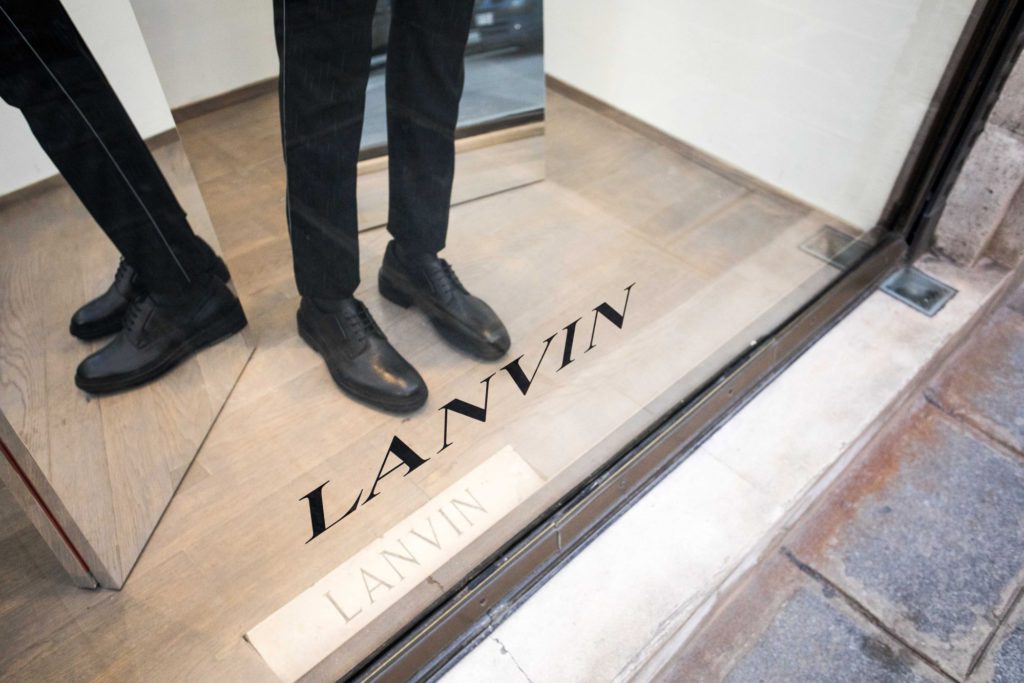(Bloomberg) — Lanvin Group, which owns the French fashion brand known for its red-carpet gowns, plans to float in New York via a blank-check company in a sign of confidence for the luxury industry.
The transaction is set to give the company an enterprise value of $1.5 billion. Lanvin’s owners, which include Chinese investor Fosun, are hoping to raise $544 million, which will help fund expansion and could help finance at least one acquisition within the next three years, Chief Executive Officer Joann Cheng said in an interview.
“New York is not only a financial hub globally, but also one of the fashion capitals,” Cheng told Bloomberg TV. “We do really see a lot of potential for our group in North America,” including expanding its store network and online presence, she said.
China’s Fosun renamed its fashion business Lanvin Group in October, giving it the name behind the oldest operating French luxury couture maker. The unit also owns Italian shoemaker Sergio Rossi, Austrian lingerie brand Wolford, American womenswear St. John Knits as well as Italian menswear brand Caruso.
Lanvin is going public following a combination with Primavera Capital Acquisition Corp., a blank-check firm which began trading last year in New York. Equity valuations have been coming off since the start of the year amid fears over rising interest rates, the war in Ukraine as well as risks in China.
The company follows Ermenegildo Zegna NV, which made a similar move last year. Few big luxury names are listed in Greater China, except for Italy’s Prada SpA, which had an initial public offering in Hong Kong more than a decade ago.
Revenue should triple by 2025 from 333 million euros ($366 million) last year, Cheng said. Almost half of that comes from Europe, Middle East and Africa, followed by a third for North America, 14% for Greater China and 5% for Japan. Lanvin isn’t the biggest brand inside the group in terms of revenue, “but it has the biggest brand equity,” Cheng said, without giving further details.
Co-Chief Operating Officer David Chan said there’s untapped demand, notably in Asia and North America, which the group should remedy by opening more than 200 new stores by 2025 in addition to the current 300.
“There are so many low-hanging fruits,” he said.
Big Luxury Stocks Are Falling Off Their Pedestal: Taking Stock
The group plans to break even in early 2024, Cheng added. Fosun bought Lanvin in 2018 and has been investing in the brand ever since, she said.
The brand founded in 1889 by Jeanne Lanvin went through some upheaval in the past decade with the late artistic director Alber Elbaz leaving the company in 2015 after almost 15 years leading the fashion team. Under his stewardship, Lanvin became a regular fixture in Hollywood, with Elbaz’s creations worn by stars like Natalie Portman at award ceremonies. In January 2019, Fosun named Bruno Sialelli to be the artistic director after four years of instability in that role.
Under Sialelli, who had previously worked at LVMH SE’s Loewe, Lanvin has tried to make the brand appeal more to Gen-Z shoppers. Some of the current best-sellers include the $890 Curb sneakers, recognizable for their wide shoelaces, as well as the $2,495 Hobo Cat Bag, whose handle comes in the shape of a cat. The brand also just released a ready-to-wear collection featuring Batman and Catwoman, coinciding with the release of the latest DC Comics superhero movie.
Sialelli brings a lot of “newness” to the brand which attracts the younger generations, Cheng said, adding that he will stay on in his role after the U.S. listing.
The group’s exposure to Russia is very limited, and the company has been able to weather the recent virus surge in China and the ensuing lockdowns thanks to e-commerce, Cheng added.
Online sales should represent at least 15% of total revenue by 2025 compared to a single-digit percentage currently, she added.
(Adds comment from Cheng in 13th paragraph)
More stories like this are available on bloomberg.com
©2022 Bloomberg L.P.











